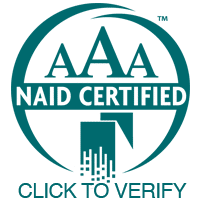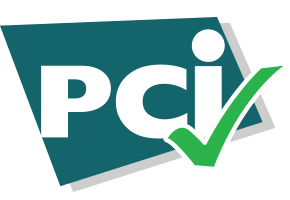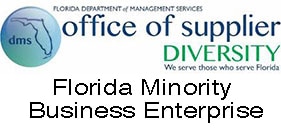Taxes and More:
Your Document Retention Policy and When to Shred
 The renowned songwriter Pete Seeger immortalized the words, “To everything there is a season,” in his iconic song, “Turn, Turn, Turn,” popularized by The Byrds in 1965. While the song doesn’t delve into it, even your sensitive documents have their season—the period from inception to disposal, commonly known as “retention periods.”
The renowned songwriter Pete Seeger immortalized the words, “To everything there is a season,” in his iconic song, “Turn, Turn, Turn,” popularized by The Byrds in 1965. While the song doesn’t delve into it, even your sensitive documents have their season—the period from inception to disposal, commonly known as “retention periods.”
Developing a Retention Policy
Establishing a document retention policy is crucial for any company. This policy defines the responsibilities of staff, volunteers, board members, and external parties regarding the maintenance, storage, and destruction of organizational documents and records. By specifying the types of documents to retain and their respective durations, this policy ensures compliance with regulations, safeguarding the company in potential legal scenarios and providing clarity for all staff members.
Laws & Regulations Governing Document Retention
Various laws and regulatory bodies mandate adherence to specific retention periods, particularly for documents containing personally identifiable information (PII). These include, but are not limited to:
- Internal Revenue Service (IRS)
- Federal Insurance Contributions Act (FICA)
- Americans with Disabilities Act (ADA)
- Age Discrimination in Employment Act (ADEA)
- Occupational Safety and Health Act (OSHA)
- Employee Retirement Income Security Act (ERISA)
- Civil Rights Act of 1964
- Fair Labor Standards Act (FLSA)
- Family and Medical Leave Act (FMLA)
- Equal Employment Opportunity Commission (EEOC)
- Health Insurance Portability and Accountability Act (HIPAA)
- Federal Unemployment Tax Act (FUTA)
Policy Components
A comprehensive policy should address key aspects to mitigate risks associated with handling information:
- Limited Retention: Collect and retain only necessary personal information to minimize risks associated with excessive data accumulation.
- Awareness of Retention Periods: Understand and adhere to specific retention periods dictated by state and federal privacy laws, tailored to your business’s needs.
- Clear Data Destruction Protocols: Clearly outline procedures for document destruction at the end of their lifecycle to ensure compliance and mitigate risks associated with improper disposal.
- Accessibility and Simplicity: Keep the policy concise and straightforward to facilitate easy comprehension and adherence among staff members.
Understanding Retention Periods
Federal and state laws supersede any informal guidelines concerning retention periods. Key considerations include:
- Legal Documents: Maintain records such as business formation documents, deeds, patents, and trademark registrations indefinitely.
- Business Tax Returns: Retain federal tax returns for three to seven years, with a recommended seven-year retention period for payroll tax records.
- Personnel Records: Adhere to federal guidelines for the retention of personnel records.
- Payroll Information: Comply with the Fair Labor Standards Act (FLSA) by retaining payroll records for a minimum of three years.
- Accounting Documents: Preserve small business accounting records for at least seven years.
- Insurance, Permits, and Licenses: Dispose of expired documents upon receipt of replacements.
- Bank Statements: Retain business banking, credit card, cancelled checks, and investment statements for seven years.
- Employment Hiring Records: Maintain job advertisements, applications, and resumes for one year.
Document Destruction Protocols
Secure document shredding is imperative for companies handling confidential information. A retention policy facilitates:
- Compliance: Ensure adherence to state and federal privacy laws, safeguarding employees, clients, and business partners.
- Legal Protection: Establish a record of compliance to defend against potential lawsuits or legal actions.
- Avoidance of Penalties: Prevent hefty fines by adhering to government regulations regarding document retention and disposal.
Exceptions to Retention Requirements
Certain circumstances may warrant extending a document’s lifespan, such as:
- Ongoing Litigation or Audit: Retain records until the resolution of any pending litigation, claim, or audit.
- Notification from Federal Agencies: Extend retention periods if notified in writing by federal awarding agencies.
- Property and Equipment Records: Preserve records related to real property and equipment acquired with federal funds for three years after final disposition.
NAID AAA Certified Shredding
Choosing a NAID AAA Certified shredding company is crucial for ensuring the highest level of security in document destruction. To earn NAID AAA Certification, a shredding company must prove their compliance with the strictest industry standards for information destruction. These companies undergo rigorous auditing processes to verify their adherence to best practices, including employee background checks, secure handling procedures, and proper disposal methods.
By selecting a NAID AAA Certified shredding company, businesses can trust that their sensitive documents will be handled with the utmost care and security. This certification provides peace of mind to organizations by guaranteeing that their confidential information remains protected throughout the entire shredding process, from collection to destruction.
UltraShred Technologies partners with businesses in Florida and Georgia, providing compliant shredding services at the end of your documents’ retention period. Our scheduled shredding service with secure shred collection bins ensure seamless security from document disposal to shredding pickup. If you need to do a file room purge, we offer a one-time shredding service as well.
Contact us at 904-928-0200 or complete the form on this page to address your shredding needs.
April 10, 2024
Request a Quote
Complete this form and receive your quote in the next 5 minutes!

Margaret's Minutes...
To get our monthly specials and learn more about information destruction, subscribe to our monthly “Margaret's Minute” newsletter!










